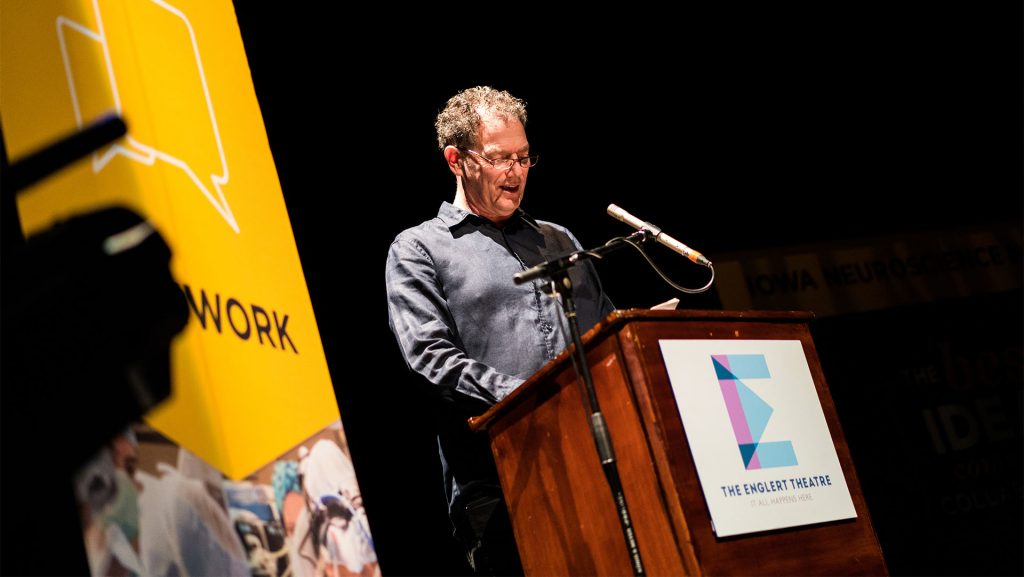Locals and members of the university community gathered at the Englert Theater on Tuesday to hear about a man’s experience growing up with an older brother who has autism. The event was sponsored by the Iowa Neuroscience Institution.
Eli Gottlieb, who teaches in the M.F.A. writing program at Columbia University, read excerpts from two of his books.
“I’m here to talk about my experience as a child in a family that struggled with autism in the 1950s and 1960s,” he said. “From a very early age, I was convinced that my family was too colorfully weird not to be written about.”
Gottlieb talked about how he felt like he watched his family from an outside perspective and then tied it to his love of writing.
“Novelists by nature are spies; I was casted into that role whether I liked it or not,” he said.
Gottlieb described his mother, saying, “She fused with my brother, fused the way atoms fused.”
Gottlieb read an excerpt from his book *The Boy Who Went Away*, which draws upon his experience of growing up with a brother who has autism. In the excerpt, the brother begins to bite his hand to the extent that it bleeds.
“My parents died; I became my brother’s guardian, I wanted to memorialize this time we had,” Gottlieb read. “The intensity creates a real complicity.”
RELATED: New Research Sheds Light on Prevalence, Factors of Autism
After finishing his excerpt, he said, “Autism compels contextual language. A novel is a hope, a light skewed into the darkness.”
He then read an excerpt from Best Boy, which is also based on his experiences with his brother but told from the point of view of the older brother with autism. “I wanted to educate the reader about autism,” Gottlieb said.
“My brother Nate comes and sees me whenever he can, and when he leaves he says see you very soon, but then a long time goes by, and it’s six months later,” Gottlieb read.
He continued reading from a section of the novel in which the main character’s mother leaves him at an institution.
“Something bad had just happened I now understood … and in that second, it was clear that I would never go home again,” he read.
Gottlieb closed with his mother’s diary he found after she passed away in 2010.
“She lived the drama of this on her skin; it defined her life,” he said.
In the dairy, you can see the love and stress that Gottlieb’s mother faced every day. He read aloud from her diary, “This has been a hard week. My body, my voice, and my love can only persuade him to a certain point.”
“I feel shattered, I love him, but I don’t have anything left to give him,” Gottlieb read. “The sickness doesn’t go away, the sadness doesn’t go away.”
After the readings, the event was turned over to a panel discussion.
“Diagnosis matter; they can make a difference in the treatment kids get in school,” said Ted Abel, the director of the Iowa Neuroscience Institute.
The discussion turned to the causes of autism.
“Autism is not a new phenomenon,” said Jacob Michaelson, a UI assistant professor of psychiatry. “There have been shifts in diagnosis boundaries. Recent studies have shown that 85 percent of autism is related to genetics.”
Beth Stevens, an associate professor at Harvard, discussed her studies regarding autism.



